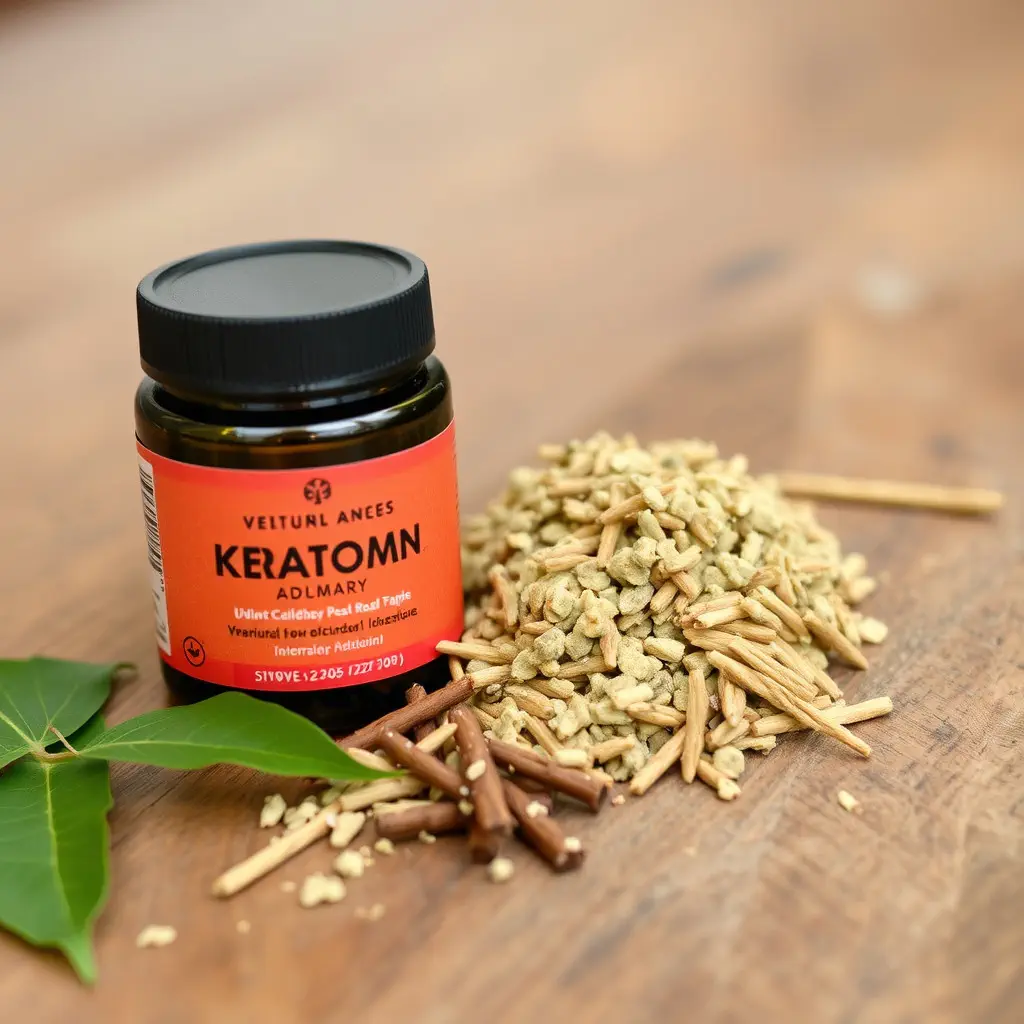Athletes in Michigan investigating natural supplements to boost mental clarity and focus have shown interest in kratom, a substance derived from the Mitragyna speciosa plant. As of the latest update, while kratom is federally legal, its status in Michigan is more complex; it's classified as a designated drug there, affecting its sale and legality. Athletes must verify the current regulations and consult healthcare professionals before considering kratom, as its use can be subject to change and may interact with other substances. Kratom's alkaloids, mitragynine and 7-hydroxymitragynine, are believed to impact cognitive function by influencing neurotransmitters like dopamine and serotonin. Strains such as Maeng Da and Bali are popular among those who report benefits in concentration during workouts and relaxation afterward. However, due to its psychoactive effects and potential for side effects, kratom should be used with caution. Athletes must navigate this supplement within the context of sports regulations and state laws to maintain a fair competitive advantage. The legal landscape of kratom is evolving, and its use in Michigan is subject to local jurisdiction-specific laws, making it crucial for athletes to stay informed about these changes to ensure compliance and safety.
Athletes across Michigan are consistently seeking edge-giving strategies to sharpen their mental clarity and focus. A natural supplement that has gained attention for its potential cognitive benefits is kratom. As we explore the intersection of kratom’s role in enhancing sportsmanship, it’s crucial to understand its legal status in Michigan. This article delves into how kratom can be harnessed to improve athletic performance while navigating the complexities surrounding its use. We will dissect the science behind kratom’s effects, offer a comprehensive guide for athletes interested in its benefits, and ensure a well-rounded view of its implications within the athletic community.
- Mental Clarity and Focus: Harnessing Kratom for Athletic Performance in Michigan
- Understanding Kratom's Role in Enhancing Sportsmanship: Legalities and Effects in Michigan Athletes
- Navigating the World of Kratom: A Guide for Athletes Seeking Mental Acuity and Focus in Michigan
Mental Clarity and Focus: Harnessing Kratom for Athletic Performance in Michigan
Athletes in Michigan seeking to enhance their mental clarity and focus have shown a growing interest in the potential benefits of kratom, a botanical supplement derived from the leaves of Mitragyna speciosa. Kratom interacts with the brain’s receptors for dopamine and serotonin, neurotransmitters that play a pivotal role in mood regulation and cognitive function. For athletes who train rigorously, maintaining mental acuity is as crucial as physical conditioning. The use of kratom may offer a natural alternative to stimulants typically used to improve focus and endurance. However, it’s important to understand the legal status of kratom in Michigan. Is kratom legal in Michigan? As of the knowledge cutoff date, kratom is legal in the state, but its legality is subject to change as regulatory bodies reassess its effects and place restrictions accordingly. Athletes should always verify the most current regulations and consult with healthcare professionals before incorporating kratom into their training regimen.
Incorporating kratom into an athlete’s routine in Michigan requires careful consideration of the product’s quality and purity, as well as dosage and timing to avoid performance-impairing effects. Strains like Maeng Da and Bali are popular among athletes for their reported balance of stimulating and sedative properties, which can enhance focus during training sessions while promoting relaxation and recovery post-exercise. Nonetheless, the use of kratom should be approached with caution due to its psychoactive nature and potential side effects. Athletes looking to harness kratom’s cognitive benefits must prioritize informed decision-making, adhering to guidelines set forth by sports organizations and local laws, ensuring they maintain a fair and safe competitive edge.
Understanding Kratom's Role in Enhancing Sportsmanship: Legalities and Effects in Michigan Athletes
When examining the role of kratom in enhancing sportsmanship among athletes in Michigan, it’s crucial to first address its legal status within the state. As of the current understanding, kratom is a subject of ongoing legal scrutiny in Michigan. The state has not enacted comprehensive legislation that categorically bans or legalizes kratom; thus, its legal standing can be murky, with local ordinances varying across jurisdictions. Athletes interested in using kratom must navigate these inconsistencies and seek clarification from both state and local authorities to ensure compliance with the law.
Kratom, a plant-derived substance from Southeast Asia, has gained attention for its potential effects on mental clarity and focus. Within the context of sports performance, these properties can be beneficial in sharpening an athlete’s concentration and mental acuity. Mitragyna speciosa, the scientific name for kratom, contains alkaloids that may influence neurotransmitter systems, potentially leading to heightened alertness and a reduction in distraction. However, it’s essential for athletes to approach its use with caution, as the effects can vary significantly from person to person. The impact of kratom on physical performance is less clear, but its role in mental aspects of sportsmanship is more pronounced. Athletes should be aware that the use of kratom can carry risks, including potential dependence and adverse interactions with other substances. As such, it’s imperative for athletes to consult with healthcare professionals and be fully informed about both the legalities and scientific research surrounding kratom before incorporating it into their training or competition regimen.
Navigating the World of Kratom: A Guide for Athletes Seeking Mental Acuity and Focus in Michigan
Athletes in Michigan who are exploring natural ways to enhance their mental clarity and focus may consider the use of kratom, a plant-based supplement derived from the leaves of Mitragyna speciosa. As with any supplement, it’s crucial for athletes to understand the legal status and potential effects on performance and well-being. Is kratom legal in Michigan? As of the knowledge cutoff date, kratom is legal at the federal level but subject to state-specific legislation. In Michigan, kratom is legal with certain caveats; it is classified as a designated drug, meaning it cannot be sold as an incense or potpourri, which were common workarounds to regulations in other states. Athletes interested in incorporating kratom into their regimen should first consult with healthcare professionals and familiarize themselves with the Michigan Bureau of Drugs, Marihuana Regulation, and Medical Marijuana Act for comprehensive guidelines.
Kratom contains alkaloids that may influence mental acuity; primarily, mitragynine and 7-hydroxymitragynine are believed to be responsible for its stimulant and sedative effects, respectively. For athletes seeking improved focus and mental clarity, strains rich in mitragynine tend to be more stimulating, aiding in sustained attention during training and competition. However, the effects can vary widely among individuals, and the optimal dosage and best strains for cognitive enhancement should be determined through personal experimentation under professional supervision. Additionally, athletes must exercise caution as kratom’s legality is subject to change and its effects may interact with other substances, including caffeine and prescription medications. Engaging in responsible use and staying informed on the evolving legal landscape of kratom in Michigan will help athletes make safe and effective choices for their performance enhancement goals.
In conclusion, the exploration of mental clarity and focus through kratom usage among athletes in Michigan presents a complex interplay between the herb’s legal status, its biological effects, and its potential benefits for sports performance. While kratom’s legality in Michigan is a subject of ongoing debate and regulation, understanding its mechanisms can aid athletes in their pursuit of enhanced concentration and mental acuity. It is clear that when approached with careful consideration and under the guidance of healthcare professionals, kratom may offer a supplementary tool for athletes to optimize their performance. However, the decision to incorporate kratom into athletic training should be made with a full understanding of its potential effects and within the bounds of current laws governing its use. Athletes in Michigan looking to harness the potential cognitive benefits of kratom must navigate this nuanced landscape responsibly, ensuring they adhere to both legal requirements and personal health considerations.






